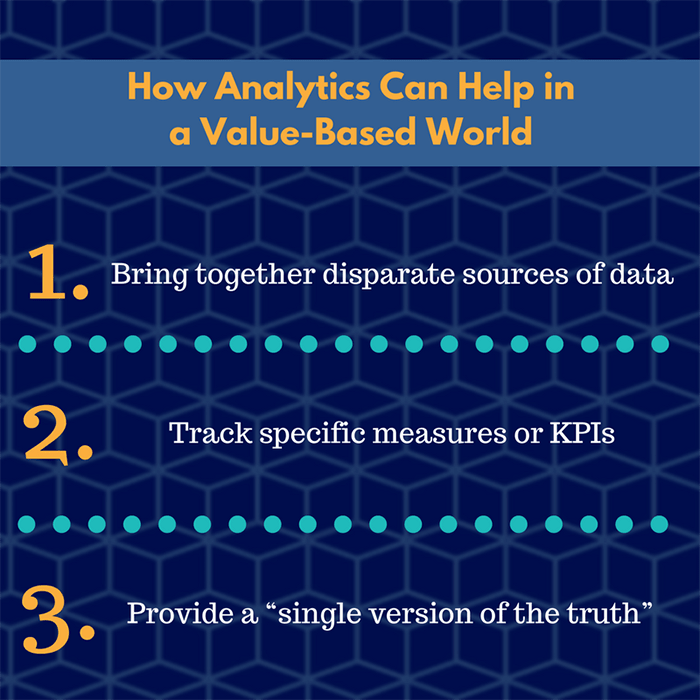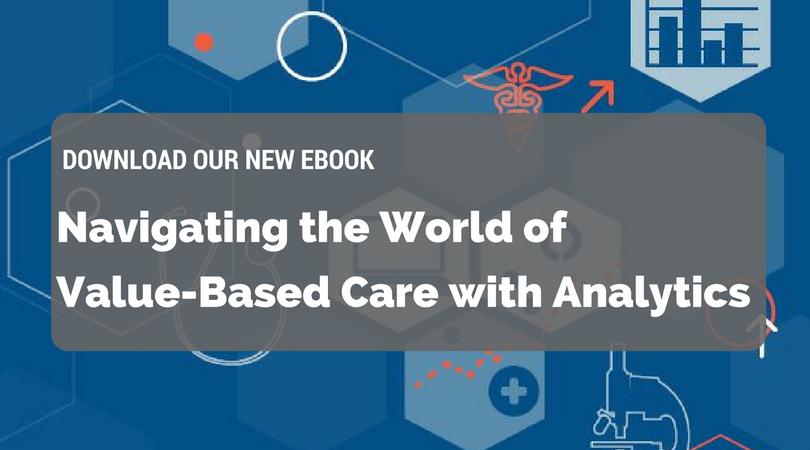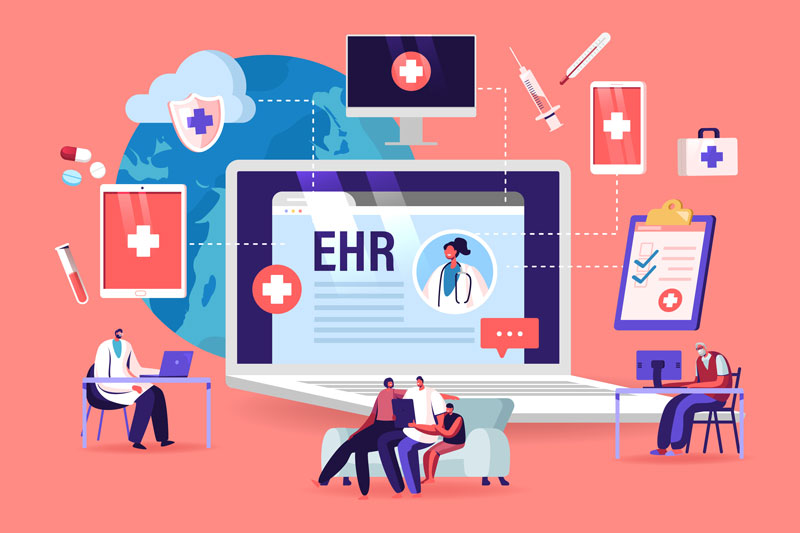 In our previous two blog posts on value-based care, we looked at the new value-based landscape and the key areas you need to focus on in order to reduce spending and improve margins within that framework. In order to do those things successfully, you need the right healthcare analytics.
In our previous two blog posts on value-based care, we looked at the new value-based landscape and the key areas you need to focus on in order to reduce spending and improve margins within that framework. In order to do those things successfully, you need the right healthcare analytics.
Any strategy for prevailing in the value-based world will require a multi-pronged approach, but business intelligence and analytics can help provide the insight you need to make more informed decisions that will ultimately reduce care costs and improve patient outcomes. In this blog post, we are going to examine three ways in which analytics can help address challenges.

1. Bring together disparate sources of data
Healthcare analytics gives healthcare organizations greater visibility into hospital operations, finances, and clinical care. It also allows for insight into how these different elements impact each other. It does this, though, by bringing together disparate sources of data, such as patient data in EHRs, financial information, and time-tracking records, among others.
In many cases, these data sources are housed in different places. Thus, it’s important to find the right healthcare analytics solution that can bring those pieces of data together in one place.
2. Track specific measures or KPIs
Healthcare analytics can also help your organization track specific measures (or key performance indicators) that you need to report on to various agencies. Here, it is critical that healthcare organizations find the right analytics tool to help them do this effectively.
3. Provide a “single version of the truth”
It’s also important to make sure the solution gives an organization proper data governance. A lack of governance is a problem when hospitals are tracking measures in different ways. For example, if the definition of a “patient day” varies in different areas of the hospital, that could affect which version of the data is correct. An analytics solution that can help reconcile differences in definitions across various departments or practices helps you make sure your data gives you a single version of the truth.
Healthcare analytics is a necessary component to reduce costs and improve patient outcomes in order to see success in this new care model landscape. The right solution will save staff members time by getting the organization the information it needs in a more efficient manner. In addition, it will help the organization make practical evidence-based, data-driven care decisions.
In our next post on value-based care, you’ll see some specific examples of how hospitals are using analytics to drive improvements.
Learn more about analytics and value-based care
To learn about the new value-based landscape and how healthcare analytics can help hospitals and health systems gain the insights they need to make better decisions, download our new eBook.
Ready for a test drive of our healthcare analytics software?
- Navigating the Future: Trends in Wine Tasting Rooms - July 16, 2024
- Why You’ll Want to Attend DIUC24 - June 20, 2024
- The Role of Technology in Solving Nursing Challenges - May 6, 2024



